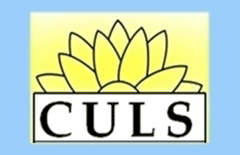Abstract
What is a MOOC? What should librarians know about MOOCS? This article introduces librarians to Massive Open Online Courses by discussing the historical development, key structure and features that make them a unique teaching platform, and some of the potential opportunities for librarian participation.
Creative Commons License

This work is licensed under a Creative Commons Attribution-Noncommercial-No Derivative Works 4.0 License.
Recommended Citation
Creed-Dikeogu, Gloria and Clark, Carolyn
(2013)
"Are You MOOC-ing Yet? A Review for Academic Libraries,"
Kansas Library Association College and University Libraries Section Proceedings:
Vol. 3:
No.
1.
https://doi.org/10.4148/culs.v1i0.1830
References
Bill and Melinda Gates Foundation (n.d.). Massive Online Open Courses (MOOCS). Retrieved from http://www.gatesfoundation.org/postsecondaryeducation/pages/massive-open-onlinecourses.aspx
Butler, B. (2012, October 22). Massive open online courses: Legal and policy issues for research libraries (Issue Brief). Association of Research Libraries. Retrieved from http://www.arl.org/bm~doc/issuebrief-mooc-22oct12.pdf
Byerly, A. (2012, November 7). Before you jump on the bandwagon. The Chronicle of Higher Education, 59(2). Retrieved from the Education Research Complete Database in EBSCOhost.
Dawson, C. (November 1, 2012). Canvas network: Infrastructure takes on Coursera, et al with a unique approach to MOOCS. ZDNet Education. Retrieved from http://www.zdnet.com/canvas-networkinstructure-takes-on-coursera-et-al-with-a-unique-approach-to-moocs-7000006733/
DeWaard, I; Abaljian, S; Gallagher, M.S.; Hogue, R; Keskin, N; Apostolos, K.& Rodriquez, O.C. (2011, November). Using mLearnng and MOOCs to understand chaos, emergence and complexity in education. The International Review of Research in Open and Distance Learning, 12(7), 95-112. Retrieve d from http://www.irrodl.org/index.php/irrodl/article/view/1046/2043
Kop, R. (2011, March 1). The challenges to connectivist learning on open online networks: learning experiences during a massive open online course. The International Review of Research in Open and Distance Learning, Special Issue: Connectivism: Design and Delivery of Social Networked Learning, 12(3). Retrieved from http://nparc.cisti-icist.nrccnrc.gc.ca/npsi/ctrl?action=rtdoc&an=18150443&lang-en
Kop, R., Fournier, H., & Mak, J. (2011). A pedagogy of abundance or a pedagogy to support human beings? Participant support on massive open online courses. The International Review of Research in Open & Distance Learning, 12(7), 74-93. Retrieved from http://www.irrodl.org/index.php/irrodl/article/view/1041/2025
Kop, R., & Hill, A. (2008). Connectivism: Learning theory of the future or vestige of the past? The International Review of Research in Open and Distance Learning, 9(3). Retrieved from http://www.irrodl.org/index.php/irrodl/article/view/523/1137
Mehaffy, G.L. (2012, September/October). Challenge and Change. Educase Review, 47(5). Retrieved from http://online.tarleton.edu/fdi/Documents/EDUCAUSE_Mehaffy.pdf
Mahraj, K. (2012). Using information expertise to enhance massive open online courses. Public Services Quarterly, 8, 360-368.
Martin, F. G. (2012). Education: will massive open online courses change how we teach? Communications of the ACM, 55(8), 26-28.
http://dx.doi.org/10.1145/2240236.2240246
McAuley, A., Stewart, B., Siemens, G., & Cormier, D. (2010). The MOOC model for digital practice. SSHRC Knowledge Synthesis Grant on the Digital Economy. Retrieved from http://www.edukwest.com/wp-content/uploads/2011/07/MOOC_Final.pdf
Pisutova, K. (2012). Open Education. ICETA 2012: 10th IEEE International Conference on Emerging eLearning Technologies and applications, November 8-9, 2012, Stara Lesna, Slovakia. Retrieved from http://www.iceta.sk/proceedings/Iceta2012_Pisutova.pdf
Synder, M. D. (Nov/Dec. 2012). Much ado and MOOCs. Academe 98(6), p. 55. Retrieved from Academic Search Premier Database in EBSCOHost.
Tschofen, C. & Mackness, J. (2012). Connectivism and dimensions of individual experience. The International Review of Research in Open and Distance Learning, 13(1), 124-143. Retrieved from http://www.irrodl.org/index.php/irrodl/article/view/1143/2086


